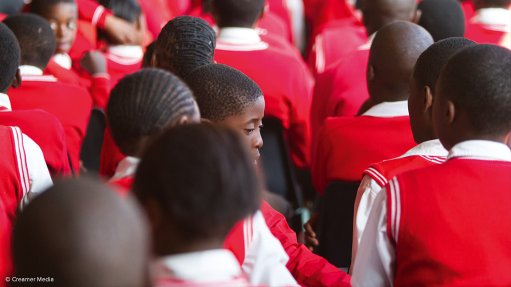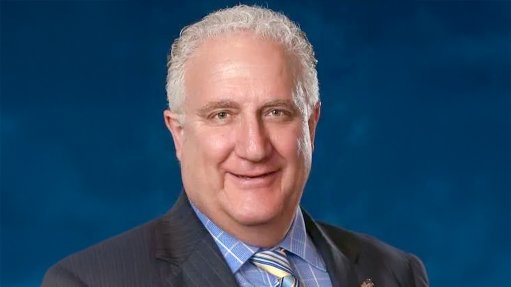Pluck the strings and weep
On May 8, 2016, supporters of the green movement reached a moment of nirvana – the state of perfect peace, highest happiness and liberation from the repeating cycle of birth, life and death. Not since the end of Margaret Thatcher had their dreams been so realised.
The huge event was this: on a sunny and windy Sunday, May 8, 2016, about 87% of Germany’s electrical power was being supplied by wind and solar power. Many organisations regarded this as yet another victory in the march to take the capital city of the dark enemy – load power generation systems such as coal and nuclear power.
Actually it is a milestone, but not of the type that the greens think. Because the sun does not shine at night and the wind does not blow all the time, when Monday morning, May 9, 2016, came around, 80% of Germany’s power was not being supplied by solar power and wind turbines. It is impossible to start up a new power station or a coal power station in a short time. Thus, on the Sunday, when the power demand fell so that it could be supplied by wind and solar, Germany still had to keep the conventional power systems running – and did so by exporting the power to neighbouring countries at a discount.
Well, you may say, even if it was for a few hours on one day of the year, that’s somethin’, innit? Well, sorta. It was the Sunday after May 1, which is Workers Day, the day on which all workers do not work. Most take an extended holiday. So, for the miracle to happen again, we have to wait for a windy and sunny holiday. Which is, um, well, not Christmas, when there is no sun and no wind. So really, only in May.
However, it has been a victory for somebody. It allows those who wish to benefit from the construction of renewable-energy projects to win over South African politicians to the cause. None of our politicians in the energy sector has the vaguest idea of how power generation works. The Minister of Public Enterprises probably knows that a power station generates power. The Minister of Energy probably is equally as informed. Thus, the peddlers of renewable energy can give presentations with graphs and data and subtexts such as “Assumptions: CPI used for normalisation to Apr-2016-rand; LCOE calculated for IRP 2010 and 2013 with 8% discount rate (real), 25-year lifetime, cost and load factor assumptions as per relevant IRP document; IRP tariff then calculated assuming 90% of total tariff to be LCOE EPC costs, i.e. divide the LCOE by 0.9 to derive at the IRP tariff – CSIR analysis.”
All this is frighteningly confusing to somebody with a teacher’s diploma. However, as government apparatchiks nod off when presented with this renewable gibberish, the presenter (ideally with a German accent, softly spoken) can mention, in a speculative tone, that “at times, 87% of the power demand of Germany is currently being met by renewable energy”. Boy, what a note! Journalists rush to the papers and stop the presses. The following day, the headlines read ‘SA’s renewable power could match Germany’s 100% achievement’.
All this is very sad. We should regard Germany as having one of the most poorly planned power systems in the world. It is as if they have built two power systems, one capable of carrying the full load of the power demand now and into the future, and one smaller system which only works from time to time, has no guarantee of reliability or durability and causes the other system to lose money if and when the weather conditions are right.
The question is: How come the Germans are so stupid? Or what do the Germans see that we do not? The point is that they are not stupid. They keep their wind industry going but they know it is a poor idea. Their plan, I believe, is to show themselves as a model to be aspired to. Then, when they have suckered us into their model, they sell us all their turbines. What a really very smart idea.
Article Enquiry
Email Article
Save Article
Feedback
To advertise email advertising@creamermedia.co.za or click here
Comments
Press Office
Announcements
What's On
Subscribe to improve your user experience...
Option 1 (equivalent of R125 a month):
Receive a weekly copy of Creamer Media's Engineering News & Mining Weekly magazine
(print copy for those in South Africa and e-magazine for those outside of South Africa)
Receive daily email newsletters
Access to full search results
Access archive of magazine back copies
Access to Projects in Progress
Access to ONE Research Report of your choice in PDF format
Option 2 (equivalent of R375 a month):
All benefits from Option 1
PLUS
Access to Creamer Media's Research Channel Africa for ALL Research Reports, in PDF format, on various industrial and mining sectors
including Electricity; Water; Energy Transition; Hydrogen; Roads, Rail and Ports; Coal; Gold; Platinum; Battery Metals; etc.
Already a subscriber?
Forgotten your password?
Receive weekly copy of Creamer Media's Engineering News & Mining Weekly magazine (print copy for those in South Africa and e-magazine for those outside of South Africa)
➕
Recieve daily email newsletters
➕
Access to full search results
➕
Access archive of magazine back copies
➕
Access to Projects in Progress
➕
Access to ONE Research Report of your choice in PDF format
RESEARCH CHANNEL AFRICA
R4500 (equivalent of R375 a month)
SUBSCRIBEAll benefits from Option 1
➕
Access to Creamer Media's Research Channel Africa for ALL Research Reports on various industrial and mining sectors, in PDF format, including on:
Electricity
➕
Water
➕
Energy Transition
➕
Hydrogen
➕
Roads, Rail and Ports
➕
Coal
➕
Gold
➕
Platinum
➕
Battery Metals
➕
etc.
Receive all benefits from Option 1 or Option 2 delivered to numerous people at your company
➕
Multiple User names and Passwords for simultaneous log-ins
➕
Intranet integration access to all in your organisation


















